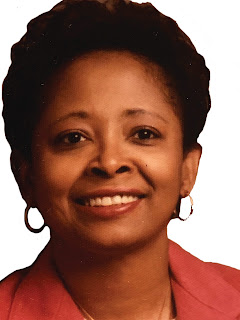The holiday season is not always jolly for families struggling to make ends meet. Many of them wouldn’t mind a helping hand. Abba’s Helping Hands, a 501 (c)(3) nonprofit founded in Memphis in 2007, is doing just that – helping families and individuals in need.
On Dec. 19, more than 40 kids from the inner city were recipients of Abba’s Helping Hands at its sponsored toy drive at Bickford Community Center, where a roomful of toys and other playthings awaited the kids for pickup.
“We bless people with furniture, food, clothing, for example, and people who’ve been burned out of their home,” said the Rev. Mark Hyde, Abba’s chief executive officer and assistant pastor of Breath of Life Seventh Day Adventist Church in East Memphis.
“We just try to help as much as we can in the community,” he said.
 |
| Carasha Williams, 5, carried away at least seven wrapped gifts |
Abba is an Aramaic word meaning “Father” and used by Jesus in the New Testament to express intimacy and his personal relationship to God.
Crystalyn Bobo felt Abba’s love and welcomed the organization’s help after two of her four children were gifted with a few toys apiece. “I’m happy about getting the new toys,” she said.
Seven-year-old Hannah Jordan, a second grader at Memphis Scholars Caldwell-Guthrie Elementary School, and Monique Jordan, who is nine and in third grade at the same school, were just as delighted as their mother to receive a handful of wrapped gifts.
“It helps,” Bobo said.
Anitra S. Huston concurred. “It’s helping a lot of kids that may not get something. There are families that don’t have much,” said Huston, whose daughters, Sasha Green, 6, and Arianna Johnson, 2, received gifts.
Huston learned about Abba’s toy drive after receiving a call from Memphis Scholars Caldwell-Guthrie Elementary School, where Sasha is in first grade. “She was picked to get a gift,” said Huston, who lives in the New Chicago community.
The kids were wide-eyed and eager to investigate the lot of toys and playthings all around them, including Carasha Williams, 5, who carried away at least seven wrapped gifts.
Angela Hyde, wife of Abba’s CEO and one of several volunteers, said, “There’s something about seeing people’s needs and desires fulfilled and knowing I had a small part in making that happen.”
Hyde praises God for blessing Abba’s collectively and each one of them individually. “Whether through service of giving, when the Lord blesses us, it’s good to give back,” she said, and added that God “blesses our family, churches and the community.”
In short, she said, “It’s just good to give back.”
Hyde is a vocal coach at AngelStreet, a 501 (c)(3) nonprofit housed at Bickford Community Center and in partnership with Oasis of Hope, a nonprofit organization that spawn AngelStreet, which first launched in 2014 before receiving its own nonprofit status two years later.
The Hydes counted on their volunteers to help make the kids’ holiday season a little brighter. Their names were compiled on a list to receive gifts. The volunteers checked the list once, twice, and once more to ensure that every kid was gifted something.
“We’ve touched a lot of people,” the Rev. Hyde said. He touted Abba’s outreach into the Memphis community and internationally, but heaped praise on the organizations and businesses that contributed to the toy drive.
Some of the organizations and businesses included E.H. Ford Mortuary Services, the drop-off location for donations; Organized Chaos Ent.; Metropolitan #161 NWPHGLTN-Central District; At Your Service! Facility Maintenance & Care, and The A.N.D.Y. (Assisting the Needs of Disadvantaged Youth) Project. Anonymous donors also contributed to Abbs’s toy drive.
The A.N.D.Y. Project, for example, “assists the needs of disadvantaged youth,” said Valerie Wright, the group’s president. Abba’s and the A.N.D.Y. Project are in lockstep with each other and serve the same constituents – the disadvantaged youth.
Wright was one of Abba’s dedicated volunteers who felt compelled to lend a helping hand. She understands that some youth are disadvantaged and that families lack the bare essentials to make ends meet.
Giving is a guiding principle of Abba’s Helping Hands. As the organization continues to bless the least of God’s people, the Hydes continue to call on “Abba, Father” to order their steps.


















